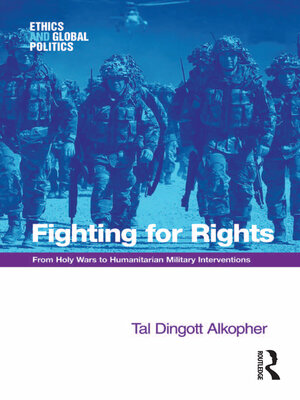Fighting for Rights
ebook ∣ From Holy Wars to Humanitarian Military Interventions · Ethics and Global Politics
By Tal Dingott Alkopher

Sign up to save your library
With an OverDrive account, you can save your favorite libraries for at-a-glance information about availability. Find out more about OverDrive accounts.
Find this title in Libby, the library reading app by OverDrive.



Search for a digital library with this title
Title found at these libraries:
| Library Name | Distance |
|---|---|
| Loading... |
In the light of NATO's humanitarian war in Kosovo is it possible to understand or explain wars as an outcome of perceptions of rights? How did rights, be they divine rights in the Middle Ages, territorial rights in the eighteenth century, or human rights today, become something that people are willing to fight and die for? To answer these questions, this book explores the linkage between concepts of rights and the practice of war in the international arena. Alkopher describes how normative structures of rights have shaped different practices of war from medieval to modern times, through the lens of social constructivism. From the eleventh to the thirteenth century, concepts of divine rights and institutionalized practices of the Crusades to the Holy Land fostered the prevailing ideas of international rights and war. In the eighteenth century, the institutionalization of states' rights and territorial wars shaped international conflict. This view held until the late twentieth century when the institutionalization of human rights coupled with the emerging practice of humanitarian war, particularly NATO's war in Kosovo, engendered new norms of international conduct. The author concludes that rights have the power to constitute an international order that will be either cooperative or conflictual and the choice of outcome is very much in our hands. This book will be essential reading for international relations and political science scholars and students but also philosophers, legal and sociological historians and international lawyers.







